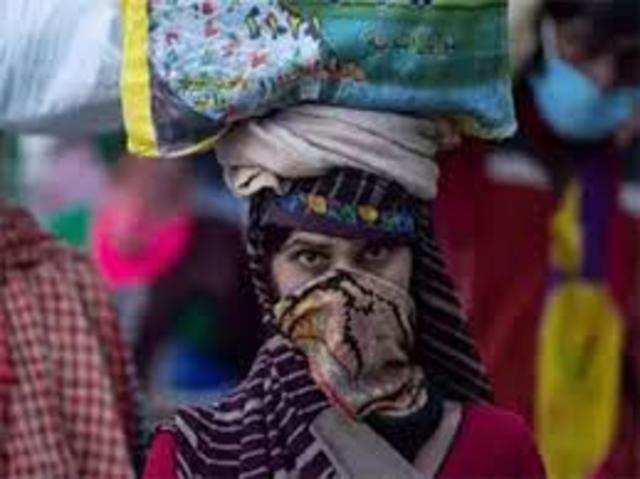Why India needs to put cash in the hands of the poor
GoI has sedulously avoided direct disbursements to wage labourers who have no jobs and no recourse.
by ET CONTRIBUTORS
By Ateesh Tankha
In his 1776 magnum opus, An Inquiry Into the Nature and Cause of the Wealth of Nations — more commonly known as The Wealth of Nations — years ago, the father of modern political economics Adam Smith wrote that wages increased with the rate of increase of national wealth. It was not the absolute size, but the speed of GDP growth that mattered.
And growth would ensure a thriving working class that could afford to eat, remain healthy, improve and nurture children, becoming, in time, the most important assets of the State. But Smith, a creature of the Enlightenment, could not have imagined the chaos of modern India. For, despite decades of growth, wealth is so heavily concentrated that the possessors hide it.
Corruption is so deeply entrenched that it is the only equitable distributor of wealth. And bureaucratic incompetence, friend to both, is accepted with the same apathy as the vagaries of careless gods are ignored by atheists. Nowhere is this more apparent than in the continuing migrant crisis, which GoI has permitted to become a humanitarian disaster.
The Rs 21.7 lakh cr package declared so far consists in the extension of credit, or the moratorium of payments. And while this helps to build an illusion of available and immediate credit, it is estimated that less than 5% of the package may be in the form of real disbursements. In fact, GoI has sedulously avoided direct disbursements to wage labourers and daily traders who have no jobs and no recourse.
Finance minister Nirmala Sitharaman, in a recent interview, bemoaned the fact that because she lacked a credible database of migrants and an instrument to transmit money, she could not assign funds accordingly. This is laughable. The package, a combination of number jugglery and the rebottling of old wine in new bottles, shows commendable bureaucratic dexterity, but amounts to little more than too little, too late, too muddled. In a word: incompetence.
About five years ago, one curious metric in the US stood out as being significant. $1and $5, both physical bills and digital amounts, were exchanged, on average, more than three times a day. By contrast, Rs 50 and Rs 100 currency were exchanged less than 80 times a year in India.
The point here is that an economy is truly healthy only when the maximum number of citizens are constantly exchanging legal tender to purchase goods and services. To do this, they need to have amodicum of money today, and the security of knowing that they will have access to more tomorrow. Americans will remember that, last month, the US government started disbursing $1,200 monthly to every adult and $1,000 for every child.
The rest of the measures, no matter their significance, will be forgotten. Without the immediate infusion of cash, the raft of medium-term and long-term measures is like a post-dated cheque drawn on a failing bank, because it is unfair and short-sighted. Millions of migrants, penniless and hungry, are either trudging back to their village homes, or waiting, in desperation, for trains to take them there now.
In the absence of rural employment, this move will afford little comfort without some hard cash. In the developed world, this situation would have resulted in civic disturbances. Developing countries would have seen district-level rioting.
It is a testament to the patience of Indian migrants that they are prepared to wait. But one must beware the fury of a patient worker. Some 20 million people are employed in the organised sector, but 390 million in the informal sector. Much learned discourse has touched on how India can replace China as a manufacturing hub. Yet, it ignores the plight of the very people who may enable this.
After all, China became a powerhouse by transforming unskilled and migrant workers into the tools of industrialisation. If transmission is not achieved to the latter soon, they will finally mistrust the hand that feeds them and the voice that guides them. Once that transition is complete, the economy may suffer uncivil disobedience and non-cooperation the likes of which we cannot imagine. Failure to become the world’s next sweatshop will be the least of our concerns.
No excuse will suffice to exonerate the government if the country descends into a Hobbesian nightmare of chaos and conflict.
To distribute cash, GoI will need to pull out all the stops. Instead of trying to amend labour laws to advance the cause of exploitation, or setting up roadside soup kitchens — thereby creating a far longer cycle of dependence — let it drive disbursement and achieve something of critical importance. If GoI cannot, let it make way for others who are willing to assume the challenge.
The writer is former head, partnerships and Citi merchant service, Citibank, US